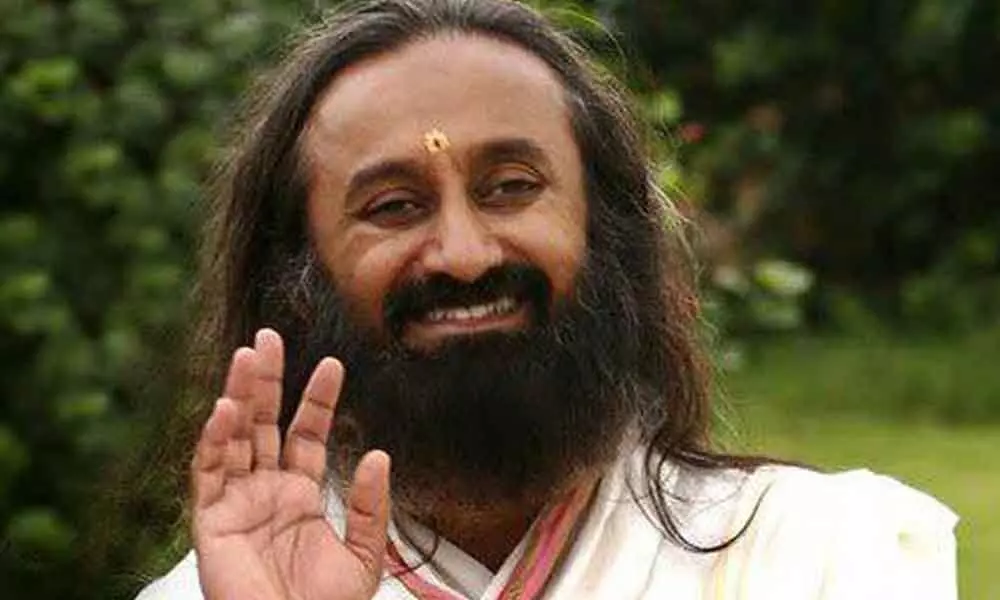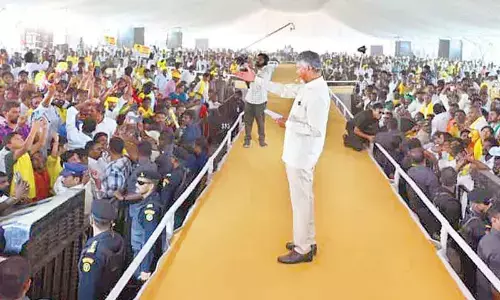Sri Sri Ravi Shankar dispels young scientists' doubts

Sri Sri Ravi Shankar dispels young scientists’ doubts
Bengaluru: On the occasion of National Science Day, young emerging scientists from fields as diverse as nuclear medicine, physics, earth sciences, innovation and management came together for a conversation with global humanitarian and spiritual leader Sri Sri Ravi Shankar. The event was hosted by The Art of Living's Sri Sri Institute of Advanced Research (SSIAR).
Some of the other esteemed guest scientists present in the event included Vikram Vishal, Associate Professor, Earth Sciences, IIT Bombay; Suruchi Jain, Assistant Professor, Nuclear Medicine, AIIMS Bhopal; Jyothsana Komaragiri, Assistant Professor, CHEP, IISc; Ajinkya Navare, Assistant Professor, OB and HRM, IIM Jammu; Ramesh Soni, Co-founder and CEO, Vayu-Jal Technologies; and Divya Kanchibotla, Executive Director, SSIAR.
In his address, Ravi Shankar spoke about the natural temperament for science in every child, and how drawing from this fact, texts like Upanishads (ancient Vedic texts) started with questions or enquiries, and encouraged people to ask questions.
He mentioned that in the ancient times, science and spirituality were never in conflict in the east, unlike in the occident. He cited an example from the Upanishads of a child going to his father and asking about the Brahman.
Step by step, the father nudges the son to find the answer through analysis of assumptions and then coming to conclusions, this being the pedagogy of ancient systems of knowledge, something that is common with modern sciences.
In response to a question by Komaragiri, who is working with CERN Collider, about how the visible universe as we know it is just 5 per cent and the rest is dark matter or dark energy and what ancient scriptures say about it, Ravi Shankar pointed out that, on very similar lines, the world of names and forms (nama and roopa) of everything visible or measureable was called 'Maya', or that which doesn't have existence of its own.
So when the matter is looked into with some depth, it is found to be full of space (shunya). That field of energy that appears to be "shunya" is not empty, but full of "Chaitanya", he explained. He also mentioned that 'knowingness' has been considered as a "tattva" which brings change or transformation in the visible universe, in line with many modern experiments that talk about how the act of observation changes the object observed.
Ravi Shankar also spoke about the 'Nasadiya Suktas' (hymn of creation, verses from Rig Veda) that talk about the cosmic origins. "The civilisation that gave the world the concept of zero cannot be frivolous or unrefined," he said.
Replying to a question by Vishal from IIT Bombay, on the need to stop rampant exploitation of natural resources for sustainable development and sustainable future, Ravi Shankar pointed out that the current generation is more aware about the issues facing them, and are much less consumerist than the previous ones.
To an issue raised by Suruchi from AIIMS Bhopal, Ravi Shankar encouraged people from both allopathic and Indian system of healing like Ayurveda and Siddha to work together, keeping their prejudices aside.
"At SSIAR, we would like to use the opportunity of the National Science Day to encourage more and more people to take up research in the ancient knowledge system and to bring about the scientific validation of these systems," said Divya Kanchibotla, executive director, SSIAR.











